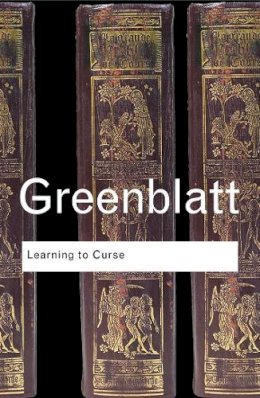8%OFF

Stock image for illustration purposes only - book cover, edition or condition may vary.
Learning to Curse: Essays in Early Modern Culture
Stephen Greenblatt
€ 24.99
€ 22.89
FREE Delivery in Ireland
Description for Learning to Curse: Essays in Early Modern Culture
Paperback. Takes an approach - 'New Historicism' drew from history, anthropology, Marxist theory, post-structuralism, and psychoanalysis and in the process, blew apart the academic boundaries insulating literature from the world around it. This book charts the evolution of that approach and provides an exploration of a contradictory epoch. Series: Routledge Classics. Num Pages: 280 pages, 6 black & white halftones. BIC Classification: DSA. Category: (P) Professional & Vocational; (UP) Postgraduate, Research & Scholarly; (UU) Undergraduate. Dimension: 196 x 129 x 21. Weight in Grams: 300.
Stephen Greenblatt argued in these celebrated essays that the art of the Renaissance could only be understood in the context of the society from which it sprang. His approach - 'New Historicism' - drew from history, anthropology, Marxist theory, post-structuralism, and psychoanalysis and in the process, blew apart the academic boundaries insulating literature from the world around it.
Learning to Curse charts the evolution of that approach and provides a vivid and compelling exploration of a complex and contradictory epoch.
Product Details
Publisher
Taylor & Francis Ltd United Kingdom
Number of pages
246
Format
Paperback
Publication date
2007
Series
Routledge Classics
Condition
New
Weight
299g
Number of Pages
276
Place of Publication
London, United Kingdom
ISBN
9780415771603
SKU
V9780415771603
Shipping Time
Usually ships in 4 to 8 working days
Ref
99-3
About Stephen Greenblatt
Stephen J. Greenblatt, the pioneer of the new historicist approach to literature, is currently John Cogan Professor of Humanities at Harvard University and the author of the recent bestselling life of Shakespeare, Will in the World.
Reviews for Learning to Curse: Essays in Early Modern Culture
'Greenblatt writes with modest elegance, is a superb scholar and researcher, and deserves his status as the first voice in Renaissance studies today.' – Virginia Quarterly Review
